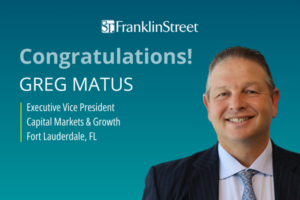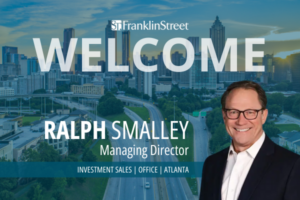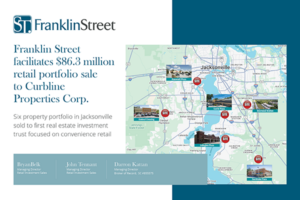On a sunny afternoon in mid-Pinellas County, two moving vans lumber onto a narrow street of Back Bay at Carillon and start disgorging sofas, rugs and enough other stuff to fill a 3,000 square foot townhouse.
”That’s gonna go straight through, right back to the family room,” Carol Ackerman instructs a mover wrestling an armchair through the door.
Over the next three days Ackerman, who stages homes for sale, will work with Toni Donadio, a Back Bay sales assistant, to transform this vacant house into a tastefully decorated showplace they hope people will be itching to buy.
The ultimate goal: make Back Bay a community of 55 individually owned homes instead of the rental project it was forced to become after the housing market crash.
With the market again perking up, Back Bay is part of a trend of converting, or in some case reconverting, rentals. Leading the way is New York City, where hundreds of rental apartments have gone condo as prices skyrocket.
In Tampa Bay, “a lot of these projects were built as condos so they have condo quality features and amenities,” says Darron Kattan, managing director of Tampa’s Franklin Street real estate brokerage. “They make more sense as condos than as rentals.”
In downtown St. Petersburg, the 12-story Sage was among the many condo developments that had the bad luck to be completed in 2007 just before the market collapsed. It remained partly dark until 2010, when a Canadian company snapped up 75 of the unsold units for just $143,000 per unit and began renting them out.
In the past two years, though, at least 29 units have sold for as much as $540,000, below the original prices but steadily increasing as condo demand soars downtown. Rachael Stanger and her boyfriend, both lawyers, had to move out of their 10th-floor Sage rental last month when their lease was not renewed because the unit was sold.
“We were really sad to leave,” Stanger says. “We had a fantastic view, everything was in great shape, everything about it was awesome.”
In Tampa’s Channelside District, Grand Central at Kennedy also came online in 2007. The developer, Mercury Advisors, sold only about half of the 392 units, which then ran as high as the $500,000 range.
“For about three years, really into 2012, there wasn’t a market for any type of condo,” says Ken Stoltenberg, Mercury’s director. “That wasn’t just us, it was everybody statewide. We decided it was best to rent them until the market recovered.”
In 2012, government-backed Fannie Mae started a program to spur condo sales by making it easier for buyers in “sufficiently stable” projects like Grand Central to get financing. Under that and a similar program from GTE Financial, 130 units were sold.
That left about 80 units unsold as of early last year.
“At that point the banks had kind of warmed up to lending, and right now we have three or four lenders who will make loans,” Stoltenberg said. With Grand Central close to Tampa Bay Lightning owner Jeff Vinik’s proposed hotel-condo-entertainment project, Mercury hopes to have the remaining 50 sold within a year.
The owner has the same hopes for Back Bay at Carillon.
Designed to evoke the stately townhouses of Boston’s Back Bay, the Florida versions are in a 430-acre office park whose tenants include Raymond James and Bright House Networks. The park, bordered by Ulmerton Road and Roosevelt Boulevard, is big enough to have been touted as a possible site for a new Tampa Bay Rays baseball stadium.
That vastness gives the Back Bay townhouses a somewhat lonely feel and arguably makes them a tougher sell than places located in more traditional, homey-looking neighborhoods. But Donadio, the sales assistant, stresses the positive: They are easily accessible to 1-275 and thus to Tampa, downtown St. Petersburg and the beaches. Within Carillon are a Publix, restaurants, banks and a wellness center.
”It’s such a great location,” Donadio says.
When Back Bay first hit the market, 25 of the 55 homes sold at prices up to $800,0000.
“But only one person closed,” Donadio says. “Buyers were backing out of their contracts because the market just tanked so bad they had to walk.”
After the developers defaulted, RO Back Bay Associates LLC bought the 54 unsold homes and began leasing them. They have been almost fully occupied but the new owner decided to try selling them again, now at prices below $700,000.
As before, the timing was bad. The townhomes went on sale right before Thanksgiving, when “no one is looking unless they absolutely have to,” Donadio says. “Traffic was a little on the slow side.”
None sold. RO Back Bay then agreed to pay for “staging” – preparing homes for sale with attractive furnishings and accessories to make them more appealing to buyers. Ackerman, who owns the Pinellas and Pasco franchises of Showhomes, a nationwide staging company, was hired to stage two vacant townhouses at a total cost of $34,000.
“Model homes always sell faster than vacant homes,” she says. “Everybody wants to buy the model because they’re decorated beautifully. They move themselves in emotionally and that becomes your purchaser.”
Though the evidence is largely anecdotal, surveys of Realtors and home stagers have found that staged homes sell more quickly and at higher prices than unstaged ones. Ackerman says a Clearwater condo that had gone unsold for 854 days had a contract within less than a week after she staged it.
The first Back Bay unit Ackerman furnished drew 18 lookers to an open house last month. No sales.
So one recent day, crews from Hall Brothers Moving – “Move Cheaply with the Pros” – began carting furniture into a second townhome. Over the next three days Ackerman filled nine rooms plus a courtyard and balcony — 3,000 square feet in all – with neutral -toned furniture and pops of color in pillows and other accessories.
As of Friday, still no buyers. Lookers have been impressed by high-end touches like tray ceilings and crown moldings, and are surprised by the homes’ spaciousness. (Some people, wanting to downsize, find them almost too big. ) Stairs are another issue, especially with older lookers.
Real estate agents will get a tour Thursday, and Donadio is confident traffic will pick up.
“Now that the brokers get to see the product and get to see it staged,” she says, “it will it will entice them to bring buyers.”
And if the townhomes don’t sell? They can always go back to being rentals.



